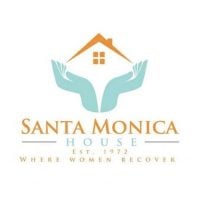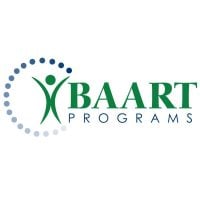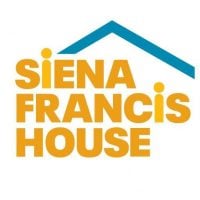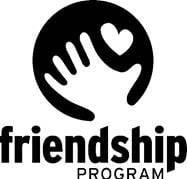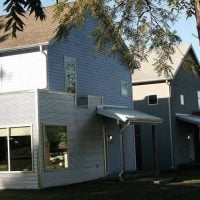A.R.C.H. Halfway House
Drug Rehab Center in Omaha, Nebraska
A.R.C.H Halfway House provides CARF accredited treatment for substance abuse and addiction, such as aftercare support, drug rehab, inpatient and intensive outpatient programs, and residential options with 28 beds available, all of which are catered to each individual's needs for a successful rehabilitation program.
About This Omaha, NE Facility
A.R.C.H. Halfway House is an Addiction Treatment Facility located in Omaha, Nebraska. With a history dating back to 1972, this facility has been providing support and treatment for individuals struggling with alcoholism, opioid addiction, substance abuse, and drug addiction for almost five decades. Accredited by CARF, A.R.C.H. Halfway House is recognized for its commitment to meeting high standards of care. This 28-bed facility accepts private health insurance and offers a range of levels of care including aftercare support, drug rehab, inpatient, intensive outpatient, outpatient, and sober-living/half-way residential programs.
At A.R.C.H. Halfway House in Omaha, individuals find comprehensive treatment options and support tailored to their specific needs. The facility offers a variety of services to address addiction and substance abuse, including inpatient and outpatient programs. These programs encompass a range of treatment approaches, allowing individuals to receive personalized care. Additionally, A.R.C.H. Halfway House provides aftercare support, ensuring that individuals have ongoing support and resources as they transition back into their daily lives after treatment. With a focus on meeting the unique needs of each individual, A.R.C.H. Halfway House strives to provide effective and compassionate care to promote long-lasting recovery.
Genders
Ages
Modality
Additional
Accreditations

CARF
The Commission on Accreditation of Rehabilitation Facilities (CARF) is a non-profit organization that specifically accredits rehab organizations. Founded in 1966, CARF's, mission is to help service providers like rehab facilities maintain high standards of care.
Conditions and Issues Treated
Recovering from any type of substance abuse is a long process, but it is one of the most worthwhile and life changing events any addicted person will ever go through. This is a combination of detoxing the body, rehabilitation, and recovery. There is also therapy, aftercare, and support during the entire process.
While substance abuse can take over a person’s life, it is something that can also be overcame by professionals at A.R.C.H. Halfway House in Omaha, NE
With so many people struggling with opioid addiction, opioid addiction treatment is more critical than ever before. Patients often take opioids when they face a painful injury. When someone begins taking opioids such as Vicodin or oxycodone differently than how the medications were prescribed, this points to opioid addiction.
Stopping these types of medications abruptly is not safe. That is where opioid addiction treatment at A.R.C.H. Halfway House in Omaha, NE comes in. Most opioid addiction treatment facilities start with detox and move to rehabilitation services while providing medical support during the process.
Getting over an opioid addiction takes time and determination, but with the right support and resources, those struggling with opioid addiction can recover and move forward with their lives.
Levels of Care Offered
This center offers a variety of custom treatment tailored to individual recovery. Currently available are Aftercare Support, Drug Rehab, Inpatient, Intensive Outpatient, Outpatient, Residential, Sober-Living / Half-Way, with additional therapies available as listed below.
Intensive Outpatient Programs (IOPs) are treatment programs suitable for people who wish to stay at home while undergoing treatment. IOPs like A.R.C.H. Halfway House make it possible for individuals to carry on with their responsibilities at work or school, in or near Omaha, NE. It’s easy to find an IOP center that offers individualized treatment protocols.
Outpatient treatment can be considered the lowest intensity level of addiction treatment in Omaha, NE. It is ideal for early phase addiction or lower intensity addictions. A.R.C.H. Halfway House peer group support, 12-step programs, and individual counseling may still be involved.
Sober living homes are homes where addicts can go after completing treatment. These facilities located in Nebraska, offered by A.R.C.H. Halfway House, support a sober living lifestyle. There are often curfews, chores and therapy sessions enforced to keep residents clean. Career training and other resources are also provided to help recovering addicts return to the outside world.
Residential treatment programs are those that offer housing and meals in addition to substance abuse treatment. Rehab facilities that offer residential treatment allow patients to focus solely on recovery, in an environment totally separate from their lives. Some rehab centers specialize in short-term residential treatment (a few days to a week or two), while others solely provide treatment on a long-term basis (several weeks to months). Some offer both, and tailor treatment to the patient’s individual requirements.
Aftercare support plays an important role when sustaining a patient’s full recovery at A.R.C.H. Halfway House. Patients also receive assistance in making living arrangements in halfway houses. Career counseling is available for those who want a fresh start. There are also local community programs in Omaha, NE such as Alcoholics Anonymous.
A.R.C.H. Halfway House‘s Therapies & Programs
Individual professional counseling or individual therapy refers to the one-on-one interaction between a patient and his or her counselor. Individual therapy allows for more privacy, one that group interactions can’t provide. Therefore, it becomes easier for a person to unload and become more open to his or her counselor.
Another benefit of individual therapy at A.R.C.H. Halfway House in Omaha, NE is that all sessions aim to speed up a single person’s progress. It makes it easier for the counselor and the patient to deal with the central issues, which are likely the culprits of substance addiction.
Once the roots of the problems are addressed, it becomes less challenging for a recovering patient to maintain sobriety and brush off temptations.
Families are not always as supportive as they could be, but by opting for family therapy, many recovering addicts are able to understand their addiction and get the support they need to get sober. These therapy sessions at A.R.C.H. Halfway House in Omaha, NE involve all members of the family who play a role in the recovering person’s daily life. They work together to overcome past issues, avoid triggers, and remain strong and supportive of each other.
In group therapy, the patient undergoes sessions with other patients dealing with similar problems under the guidance of a trained counselor. The members of the group interact with each other and talk freely about their issues. The recovery of members of the group from the problems that they face gives the patients confidence that they can also overcome their addiction.
Group therapy at A.R.C.H. Halfway House reduces the feeling of loneliness and improves the coping skills of the patients. Group therapy provides patients with continuous feedback from other members. The group dynamics ensure that members start having some structure and routine in their lives.
Dialectical behavior therapy (DBT) is a method of individual and/or group counseling that focuses on acceptance and change. DBT can be very effective in developing coping strategies for negative emotions.
Cognitive behavioral therapy (CBT) is a way of addressing concerns through talking. Talking through issues can identify sources of discomfort or unhealthy thoughts. CBT is a healthy way A.R.C.H. Halfway House addresses some behaviors which may be bringing unintended consequences in a persons life.
Rational Emotive Behavior Therapy (REBT) is a type of cognitive therapy. It is based on the principle that irrational thoughts are responsible for the emotional and behavioral changes in addiction. The therapy starts with identifying the underlying irrational thoughts. These thoughts are then challenged and opposed logically and then replaced with positive thoughts.
The 12 step program is the treatment method used by Alcoholics Anonymous, but it can apply to any type of addiction. It outlines the 12 steps addicts should take on the path to recovery. Steps include admitting you have a problem and making the decision to turn your life around. A belief in a higher power and making amends to others are also part of the program.
Patient Experience
Experiential Therapy at A.R.C.H. Halfway House
Experiential therapy can involve acting, props, arts and crafts, animal care or other tools. It can help revisit and heal from past traumas. Trust between the therapist at A.R.C.H. Halfway House and individual is important for success and grown over the stay.
Payment Options Accepted
For specific insurance or payment methods please contact us.
Is your insurance accepted?
Ask an expert, call (888) 674-0062
Additional Details
Specifics, location, and helpful extra information.
Omaha, Nebraska 68105 Phone Number(402) 346-8898 Meta DetailsUpdated November 25, 2023
Staff Verified
What else do people call A.R.C.H. Halfway House?
People have occasionally also searched for “ARCH Halfway House in Nebraska”
Patient Reviews
There are no reviews yet. Be the first one to write one.
Omaha, Nebraska Addiction Information
Despite a total population of slightly less than 2 million residents, methamphetamines are one of the most commonly abused illicit substances in the state. Alcohol abuse is so common that a news article once referred to Nebraska as "America's 9th drunkest state". Although opioid abuse rates in Nebraska are not as high as those in other states, opioids are still involved in most overdoses.
Omaha, NE has been hit hard by drug addiction and abuse in recent years. About 5% of the population is addicted to drugs or alcohol. Marijuana is the most commonly abused drug in Omaha. In 2017, there were 936 people admitted to treatment centers for marijuana abuse. Crime rates have gone up, and there have been more cases of child abuse and neglect.
Treatment in Nearby Cities
- Macy, NE (62.7 mi.)
- Sidney, NE (364.8 mi.)
- Lincoln, NE (49.0 mi.)
- Geneva, NE (98.9 mi.)
- Beatrice, NE (79.6 mi.)
Centers near A.R.C.H. Halfway House
The facility name, logo and brand are the property and registered trademarks of A.R.C.H. Halfway House, and are being used for identification and informational purposes only. Use of these names, logos and brands shall not imply endorsement. RehabNow.org is not affiliated with or sponsored by A.R.C.H. Halfway House.


